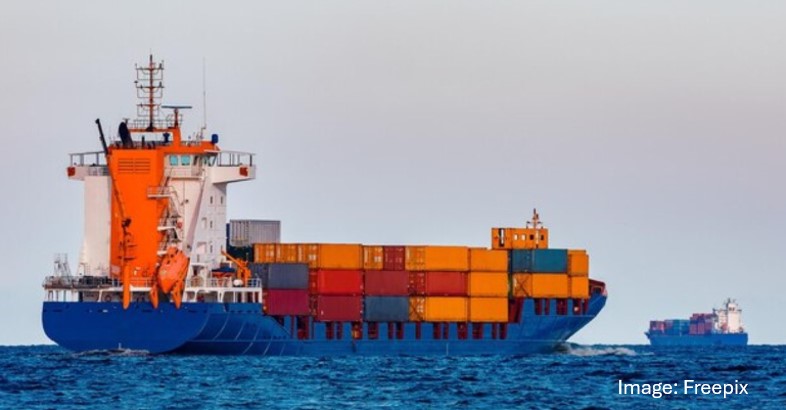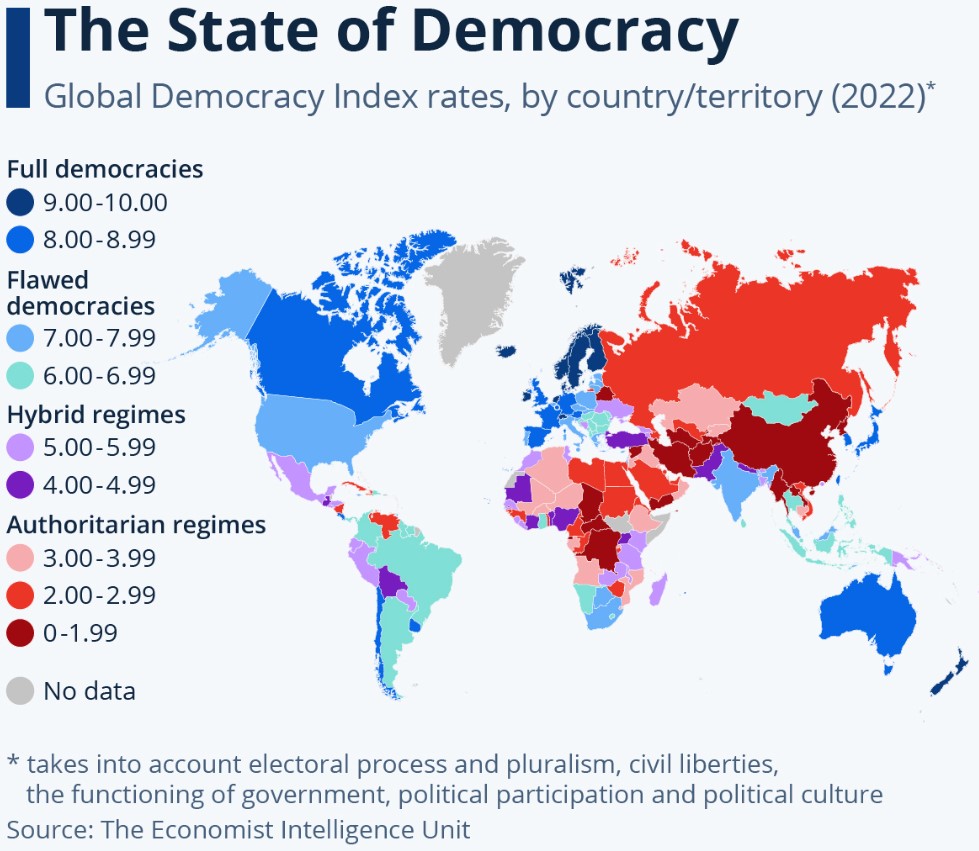6 Sep. 2024
Consumption drives the world eocnomy. The democracies still have about 70% of it, but this is set to decline. The proportion of people living in democracies has fallen below 50%. We should use our disproportionate purchasing power to promote democracy and human rights.

By reforming/replacing the World Trade Organisation, we can give preferential market access to fellow democracies. This is justifiable ethically but also economically, since people without rights are cheaper to employ and easier to exploit. This means free trade gives despots a competitive advantage.
Dictators will still sell to us, but on worse terms. They will likely try to make up lost export markets by supplying domestic demand, benefiting their captive populations.
They may even participate constructively in the transition, given their limited options, reducing costs on both sides. The prospect of better terms could even push some towards democracy. Either way, we do not need their permission when deciding with whom we trade.

In practice, this means assessing countries’ democratic credentials. One option would be a legalistic approach.
When communism collapsed in the USSR, the countries of Eastern Europe were keen to join the European Union. They were judged on their progress towards democracy and human rights as a prerequisite for membership. The new WTO could adopt a similar approach.
Although a legalistic approach is possible, I prefer a civil society solution with a People’s United Nations alongside the governmental one. Countries would elect gender-balanced representatives in proportion to their population, providing an important platform for the Global South, women, and popular opinion generally.
Could China resist membership of a global organisation in which Chinese would have a quarter of the votes, even at the price of their transparent and democratic election?
The People’s UN would receive expert advice and could become an important gauge of global opinion across a range of issues. It could also determine countries’ compliance with the UN Declaration of Human Rights, and the tariff applied to their exports.